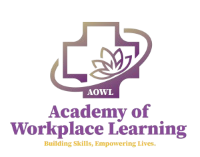
How do I become a outreach worker?
Certificate IV in Community Services
- There are no mandated entry requirements.



Certificate IV in Mental Health
- There are no mandated entry requirements.








Certificate III in Community Services
- There are no mandated entry requirements.




Diploma of Community Services
- There are no mandated entry requirements.




Dual Certificate IV in Alcohol and Other Drugs & Certificate IV in Mental Health
- There are no mandated entry requirements.


Certificate IV in Youth Work
- There are no mandated entry requirements.


Diploma of Mental Health
- There are no mandated entry requirements.


Diploma of Youth Work
- There are no mandated entry requirements.
 Hader Institute of Education
Hader Institute of Education
Course in Identifying and Responding to Family Violence Risk
- There are no mandated entry requirements.
 genU Training
genU Training
Dual Certificate IV in Alcohol and Other Drugs & Certificate IV in Community Services
- There are no mandated entry requirements.
 genU Training
genU Training
Related occupations
Family Support Worker
Family Support Workers provide guidance and emotional support to families, assisting those at risk and working in various sectors like child protection and community health.
Child Safety Officer
A Child Safety Officer identifies at-risk children and ensures their protection through assessments, investigations, and case management.
Residential Care Worker
Residential Care Workers support children and adults in various facilities, providing personal services and maintaining close relationships with clients and their families.
Youth Support Worker
Youth Support Workers assist young people with employment, housing, and education while addressing social, financial, and emotional challenges through counselling and outreach.
Youth Case Worker
Youth Case Workers assist children and teens individually, enhancing their lives while managing files and navigating social welfare systems.
Family Counsellor
Family Counsellors support families in crisis, focusing on individual and collective wellbeing while employing various therapeutic interventions.
Welfare Worker
Welfare Workers assist disadvantaged individuals in accessing social services, conducting assessments, and referring them to appropriate support agencies.
Youth Justice Officer
Youth Justice Officers supervise young offenders in custody, fostering personal development while ensuring security and referring them to essential services.
Youth Counsellor
Youth Counsellors assist young people with emotional and personal issues, fostering strategies to address mental health, relationships, and trauma.
Social Welfare Officer
Social Welfare Officers support individuals and families facing challenges like mental health, unemployment, or homelessness through outreach and direct aid.
Community Outreach Coordinator
Community Outreach Coordinators manage outreach programs for vulnerable populations, balancing fieldwork with administrative tasks and coordination.
Community Worker
Community Workers support vulnerable individuals through counselling, advocacy, and social welfare programs, specialising in areas like mental health and disability.
Youth Engagement Officer
Youth Engagement Officers promote education and wellbeing in vulnerable youth through outreach programs and support initiatives.
Trauma Counsellor
Trauma Counsellors support clients recovering from trauma and PTSD using therapeutic techniques to foster healing and resilience.
Social Justice Advocate
A Social Justice Advocate promotes human rights and equality by addressing discrimination and social exclusion through research, advocacy, and community engagement.
Youth Support Officer
A Youth Support Officer provides guidance and support to young people, creating personalised plans and facilitating access to community resources.
Human Rights Activist
A Human Rights Activist advocates for social justice and human rights by raising awareness, campaigning for policy changes, and supporting those facing violations.
Humanitarian Aid Worker
A Humanitarian Aid Worker supports communities in crises by assessing needs, coordinating relief efforts, distributing supplies, and advocating for vulnerable populations.
Youth Adviser
A Youth Adviser supports young people by providing guidance in education, employment, and personal development while developing tailored programs.
Human Rights Officer
A Human Rights Officer advocates for the protection of human rights by investigating complaints, supporting victims, and developing policies for equality and justice.
International Aid Worker
An International Aid Worker provides humanitarian support in crisis-affected communities, managing relief programmes and collaborating with local partners to tackle issues like poverty and education.
Child Psychologist
Child Psychologists provide therapy and counselling to children, teens, and families, addressing trauma, mental health, disabilities, and developmental issues.
Human Rights Advocate
A Human Rights Advocate promotes and protects individuals' rights through legal representation, policy development, and public education while collaborating with various stakeholders.
Common questions
How much do Outreach Workers earn?
In Australia, a full time Community Outreach Worker generally earns $1,300 per week ($67,600 annual salary) before tax. This is a median figure for full-time employees and should be considered a guide only. As you gain more experience can you expect a higher salary than people who are new to the industry.
What are the job opportunities for Outreach Workers?
There are currently 24,400 community outreach workers employed in Australia — they are mainly employed by healthcare, community service, and government organisations.
Source: Australian Government Labour Market Insights
How do I become a Outreach Worker?
You could get started as an Outreach Worker with a Certificate IV in Community Services or the Diploma of Community Welfare and Wellbeing. Supporting qualifications in Mental Health, Youth Work, Ageing, Drug and Alcohol may also be helpful. These take 12-18 months to complete. Outreach Workers usually require a national police check and a working with children clearance.
Further reading


How to start a career in Youth Work
25th May 2021)

